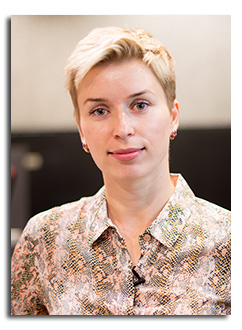
Abstract
Hybrid organic-inorganic perovskites (HOIPs) have recently emerged as highly promising solution-processable materials for photovoltaic and other optoelectronic devices. HOIPs represent a broad family of materials with properties highly tuneable by the ions that make up the perovskite structure as well as their multiple combinations. Interestingly, recent high-efficiency PV devices using HOIPs with substantially improved long-term stability have used combinations of different ionic compositions. The structural dynamics of these systems are unique for semiconducting materials and are currently argued to be central to HOIPs stability and charge-transport properties. In this talk I will examine the impact of ionic composition on phonon speeds of HOIPs from Brillouin spectroscopy experiments and density functional theory calculations for FAPbBr3, MAPbBr3, MAPbCl3, and the mixed halide MAPbBr1.25Cl1.75. The results show that the acoustic phonon speeds can be strongly modified by ionic composition, which I will explain by analysing the lead-halide sublattice in detail. The vibrational properties of HOIPs are therefore tuneable by using targeted ionic compositions in the perovskite structure. This has an important implication to further improvements in the stability and charge-transport properties of these systems.
Click here to see all available video seminars.
Click here to go to the SPREE HOMEPAGE.
Brief Bio
Dr Irina Kabakova is a lecturer and researcher with the School of Mathematical and Physical Sciences, University of Technology Sydney. She is currently working in the field of biomechanics, Brillouin imaging and micro-mechanical characterisation of novel materials. She graduated with a PhD in 2012 from the University of Sydney, then worked as a postodoctoral researcher in Nonlinear Phononics (the University of Sydney) and NanoOptics (AMOLF, Amsterdam) groups. In 2015 Dr Kabakova was awarded Imperial College London Research Fellowship to direct her own project in Brillouin imaging and endoscopy. She joined the University of Technology Sydney in December 2017 in the role of a Senior Lecturer.
